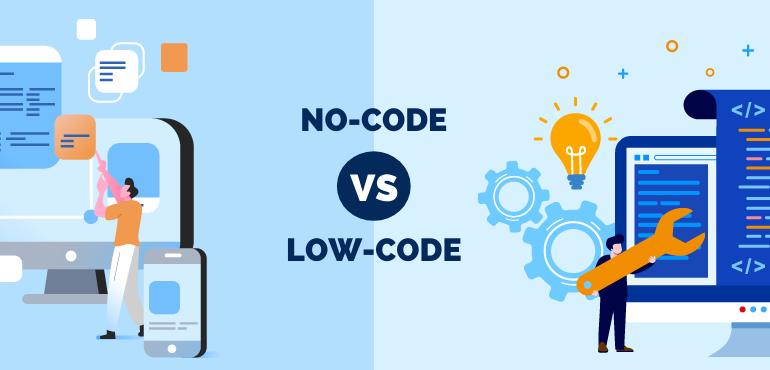
15 Reasons Why Your Company Should Switch To Low-Code No-Code (LCNC)
Reading Time: 4 minutesYou might have wondered why your company should switch to low-code no-code development when everything is going fine with the traditional workflow. The software industry is growing faster than most of us can imagine. But many believe that coding an app is a demanding job that requires you to work long hours while learning complex

Digital Transformation Roadmap 101: Strategy To Deploy Competitive Business
Reading Time: 6 minutesMost digital transformation programs don’t fail because of weak ambition. They fail because of poor sequencing. Initiatives launch simultaneously without coordination. Dependencies surface too late. Budgets stretch. Teams burn out. Leadership loses visibility. What started as a bold transformation becomes a collection of disconnected projects competing for time, funding, and attention. The issue is rarely

Dead Code Is Quietly Killing Digital Transformation And Governed No-Code Is the Way Out
Reading Time: 8 minutesMost digital transformation programs do not fail loudly. They erode quietly. Systems continue running. Dashboards still refresh. Reports still get generated. Yet decision-making slows, execution confidence drops, and every change feels riskier than the last. One of the most overlooked reasons for this erosion is dead code — or, more accurately in modern business systems,

Navigating the Agile Framework Essential Insights for Modern Business in 2026
Reading Time: 9 minutesDid you know? According to a McKinsey survey, companies that adopt agile practices are 70% more likely to rank in the top quartile for organizational health. It’s not just a framework, it’s a catalyst for future business leaders and sustainable growth. In a world where change is constant and technology evolves faster than ever, embracing

No-Code versus Low-Code in 2026: Breaking down the Pros and Cons!
Reading Time: 11 minutesIn today’s digital landscape, agility and efficiency are the best way to determine success. This stems from a need to stay updated and keep up with rapidly changing technology. Agility is key to having an edge over your competitors and keeping up with any new trends. With newer forms of development like no-code and low-code

Future of Citizen Development: Unlock your Workplace in 2026
Reading Time: 6 minutesWhether big or small, companies look at digitally transforming their operations to improve productivity, stay competitive, and adapt to the changing business environment. These companies rely heavily on their IT department to meet their software application needs for digital initiatives. Overwhelmed with software requirements from across business units, IT departments cannot fulfill their requirements. The

Learn How Process Automation Accelerates Digital Transformation
Reading Time: 8 minutesWhat if you could seamlessly share organizational data across departments and ensure that everyone has timely access to the right information? What if specific events in one department could automatically trigger workflows in another without manual follow-ups? This is exactly how Process Automation Accelerates Digital Transformation. By implementing the right automation framework, businesses can eliminate

No-Code Vs. COTS (Readymade Software): Understanding the Pros and Cons!
Reading Time: 8 minutesJohn opens his laptop and logs in for the day. As per the discussion with his team on the previous day, he needs software to manage tasks and keep track of all his vendors and suppliers for their upcoming projects. As if reminiscing a terrible memory, he thinks about his buggy and constantly troubling COTS

How can No-Code for BFSI transform the Industry in 2026
Reading Time: 9 minutesThe past few years have seen the rise of remote working and disrupted industries across. But, the Banking Financial Services and Insurance BFSI sector has taken a massive hit because of the pandemic. Moreover, customer expectations keep rising, and new technologies and heavy regulations are the tips of the iceberg for banks and insurance companies

12 Expert Tips for Successfully Govern Citizen Development in Your Organization
Reading Time: 8 minutesCitizen development has suddenly become a common term, with many individuals and companies throwing it around in casual speech. This has led to a fair amount of confusion and misconception. In fact, in many instances, shadow IT and citizen development is being superimposed. Before we speak about how to implement and govern citizen development, thus,













